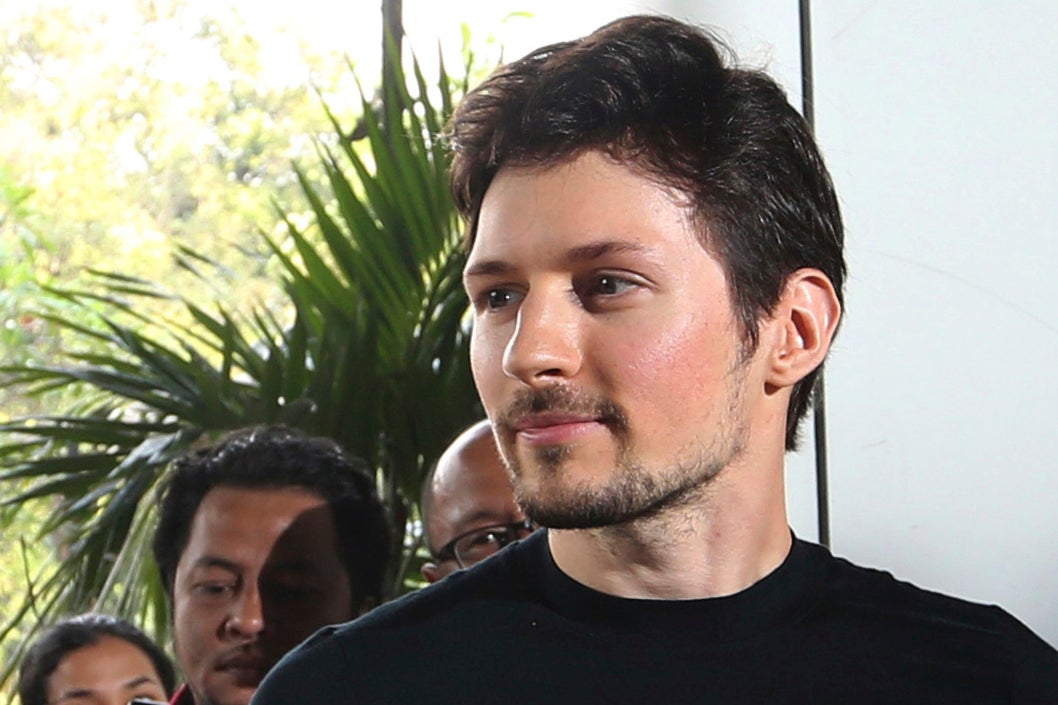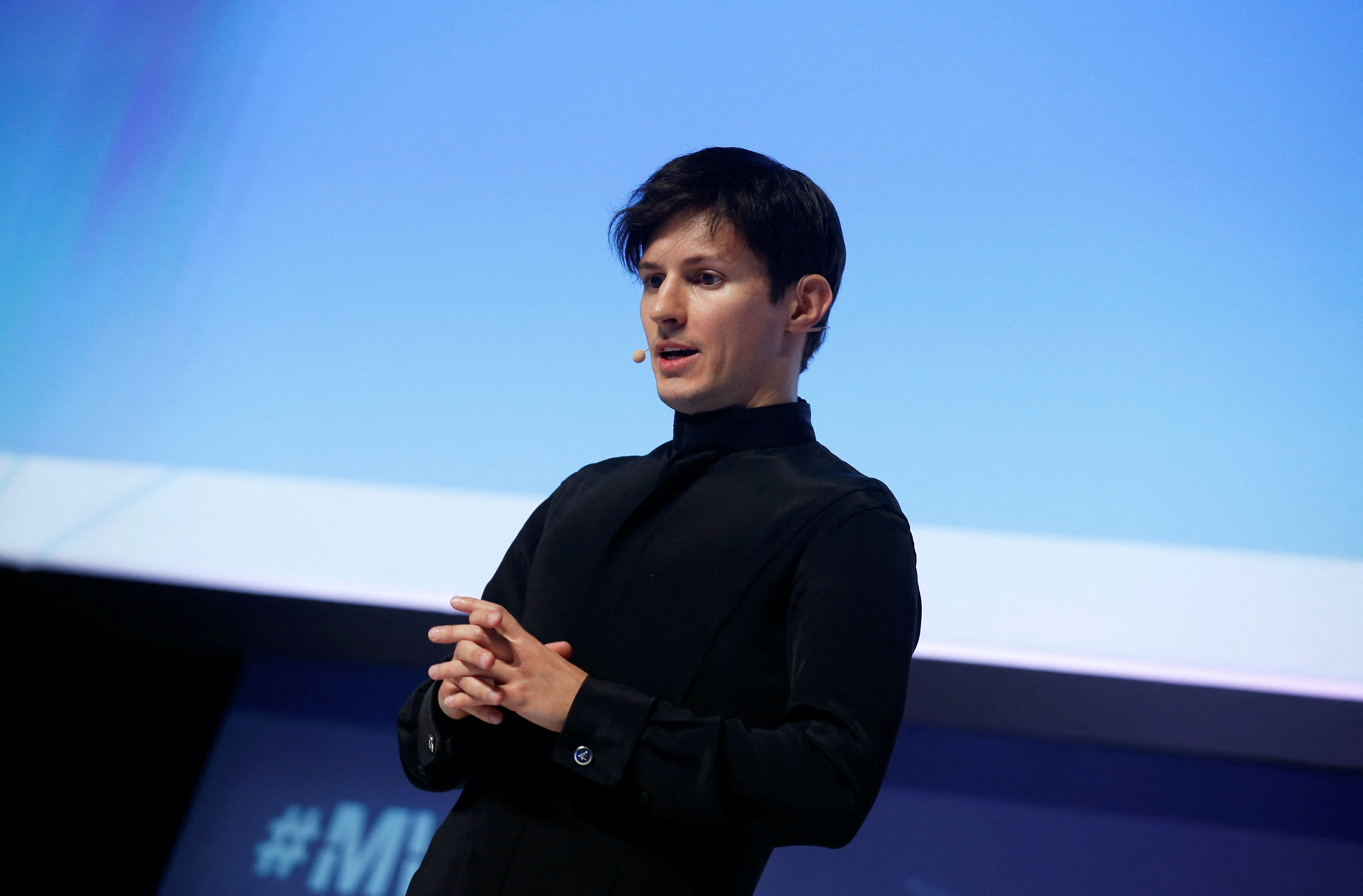Telegram founder Pavel Durov banned from leaving France as authorities step up criminal probe
A judge has found there are grounds to formally investigate the tech billionaire on all the charges for which he was arrested
Telegram founder Pavel Durov has been banned from leaving France as authorities put him under official investigation as part of a probe into criminal activity on his messaging app.
Mr Durov, 39, was released on bail on Wednesday after four days of questioning following his arrest at Le Bourget airport outside Paris on Saturday
The Telegram chief executive was released under judicial supervision on the condition that he paid a €5m deposit, reports twice a week to the police and does not leave the country.
Paris prosecutor Laure Beccuau said in a statement the judge found there were grounds to formally investigate Mr Durov on all the charges for which he was initially arrested four days ago.
They include suspected complicity in running an online platform that allows illicit transactions, images of child sex abuse, drug trafficking and fraud, as well as the refusal to communicate information to authorities, money laundering and providing cryptographic services to criminals.
Being placed under formal investigation in France does not imply guilt or necessarily lead to trial, but indicates judges consider there is enough evidence to proceed with the probe. Investigations can last years before being sent to trial or shelved.

Mr Durov’s lawyer did not immediately respond to a request for comment, but after his arrest Telegram stated: “It is absurd to claim that a platform or its owner are responsible for abuse of that platform. Almost a billion users globally use Telegram as a means of communication and as a source of vital information. We’re awaiting a prompt resolution of this situation. Telegram is with you all.”
The platform added that it abides by EU laws, and its moderation is “within industry standards and constantly improving”.
Russian government officials have expressed outrage at Mr Durov’s detention, with some calling it politically motivated and proof of the West’s double standard on freedom of speech. The outcry has raised eyebrows among Kremlin critics: in 2018 Russian authorities themselves tried to block Telegram but failed, withdrawing the ban in 2020.
Elsewhere, Elon Musk, the billionaire owner of X who has called himself a “ free speech absolutist”, has been speaking out in support of Mr Durov and posted ”#freePavel” following the arrest.

French president Emmanuel Macron, who is known to be an avid user of the app, has said Mr Durov‘s arrest was “in no way a political decision”, adding France supports lawful free speech.
Mr Macron had lunch with Mr Durov in 2018 as part of a series of meetings with tech entrepreneurs, a source close to the president said, and Mr Durov was granted French citizenship in 2021 under a rare procedure for high-profile individuals.
Mr Macron posted on X, formerly Twitter, that his country “is deeply committed” to freedom of expression but “freedoms are upheld within a legal framework, both on social media and in real life, to protect citizens and respect their fundamental rights”.
Telegram had 950 million active users in July 2024, according to Mr Durov, making it the world’s fourth most popular messaging platform behind WhatsApp, WeChat and Facebook Messenger.
The Russian exile rarely gives media interviews but often shares personal updates and insights through his Telegram channel, which has more than 11 million subscribers.
The tech billionaire has been described as Russia’s Mark Zuckerberg for his role in founding the social media platform VK. He was forced to leave the company in 2014 after refusing to comply with government demands to share details of protesters, who were active on the site.
He continued to run Telegram from Dubai, having obtained dual citizenship from the UAE and France, and travelled regularly throughout Asia, the Middle East and Europe before his arrest on Saturday.
The app has been controversial, having been used by everyone from Isis to recent UK rioters, who organise and share information in private groups. Telegram says that “calls to violence” are explicitly forbidden and that any channels containing them are removed.
